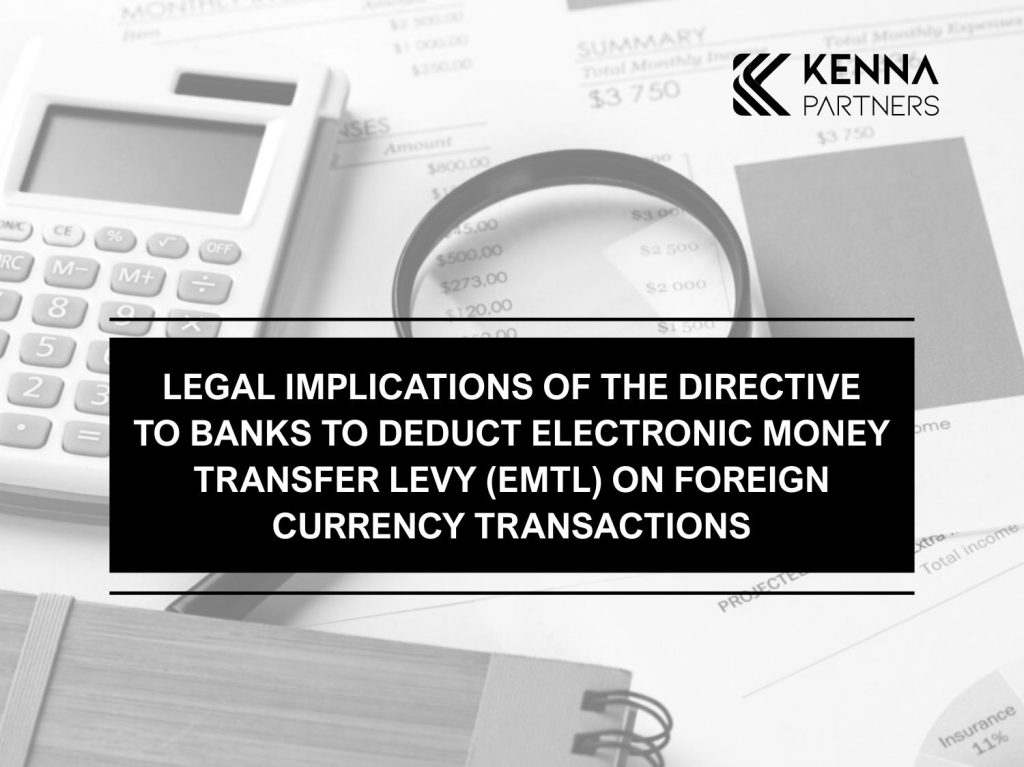
The Federal Inland Revenue Service (FIRS) in exercise of its powers under the Federal Inland Revenue Establishment Act, 2007, mandated the deduction and remittance of the Electronic Money Transfer Levy (EMTL) on Foreign currency transactions (FCY) in December 2023.This directive, which was given to deposit money banks in Nigeria, is a follow-up on the effect of the “Electronic Money Transfer Levy Regulations 2022” of December 6, 2022, which was issued by the Honourable Minister of Finance, Budget and National Planning (Minister of Finance) and approved by the National Assembly, in exercise of the powers conferred on the Minister of Finance by Section 89 of the Stamp Duties Act.
The Directive instructed all deposit money banks to implement the Electronic Money Transfer Levy (EMTL) on foreign currency deposits from January 2024. A face-value comprehension of the Directive could be interpreted as though the directive from the FIRS to all deposit money banks to implement the EMTL is premised on the authority of the FIRS without any reliance on enabling legislation which is not the case.
There are pertinent issues that are bound to arise from this Regulation and the directive of the FIRS especially when compared with the enabling laws that regulate the tenor of taxation in Nigeria, the Finance Act, 2020 and the Stamp Duties Act.
This article aims to examine the legal implications of the directive and the pertinent issues that arise or would arise post-implementation of the directive by banks and financial institutions.
